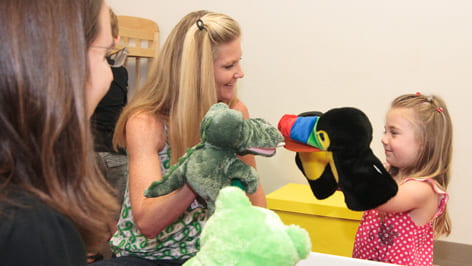Lowering prenatal stress for healthier babies
A UC Irvine research team is investigating correlations between prenatal levels of stress hormones and infant/child learning and behavior. Their Women and Children’s Health and Well-Being Project is among the first large-scale studies on the subject.

Stress is an everyday part of life, but too much of it for pregnant women can be detrimental to their babies’ development. A team of UC Irvine researchers is working with 600 Southern California women and their children to understand why.
Elysia Poggi Davis, Curt Sandman, Laura Glynn and Pathik Wadhwa of psychiatry & human behavior are investigating the correlation between prenatal levels of stress hormones, such as cortisol, and infant/child cognition and behavior.
Their Women & Children’s Health & Well-Being Project is among the first large-scale studies in the country on prenatal stress and child development.
“There is a small but growing body of evidence that the stress pregnant mothers face can influence health outcomes of their babies,” says Davis, a developmental psychobiologist who has been with the project since it began in 2002. “This is a new area of study and what we learn now will go a long way toward the creation of treatments to improve prenatal health.”
While cortisol helps the body deal with stressful situations, long-term exposure in adults contributes to heart disease and other health problems. Pregnant women pass cortisol on to their fetuses, and studies have shown that higher cortisol levels in the mother’s blood are matched by higher levels in the amniotic fluid.
“In the final weeks of a pregnancy, babies need more cortisol for development of the lungs and central nervous system. It’s the elevated levels early in the pregnancy that cause problems,” says Davis, whose efforts are funded by the National Institute of Child Health & Human Development and the National Institute of Mental Health.
Davis found that babies of mothers who experienced chronic stress and anxiety during their pregnancies did not perform as well on cognitive tests at age 1 as the offspring of less-stressed mothers and generally had more fearful temperaments. Other studies suggest that chronic prenatal stress is related to ADHD symptoms in children.
Nancy Gadol — who participates in the UCI project with her children, Sydney, 5, and Brady, 2 — says it has made her more aware of many stressors facing mothers-to-be. “I made sure I tried to relax during my pregnancies, get enough exercise and eat right,” the Laguna Niguel resident says.
While pregnant, Gadol was evaluated five times for biological and psychological signs of stress. Now she brings her children to UC Irvine Medical Center every six months to play games that test memory, impulse control and motor control. “They think it’s a lot of fun,” she says.
Davis and Gadol both hope the project will increase awareness that prenatal stress can affect postnatal development.
“The prenatal period is a time of rapid change when everything is forming and the baby is most susceptible,” she says. “We believe our findings will lead to a better understanding of the importance of prenatal experiences to children’s health.”